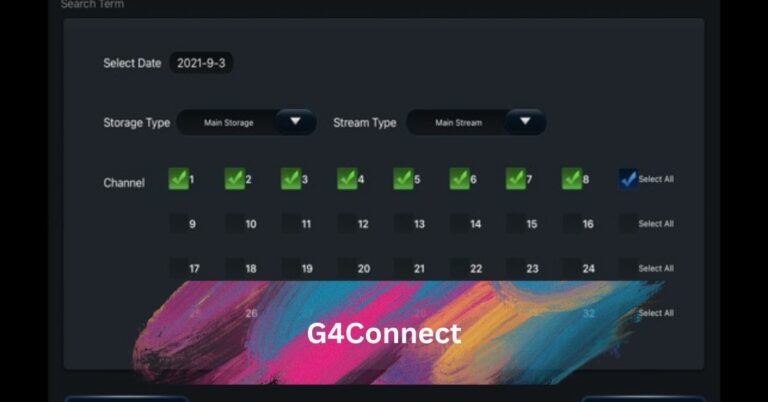
In the ever-evolving landscape of cannabis delivery services, Grassdoor emerged as a pioneer, reshaping the industry since its establishment in 2018. However, recent developments have cast a shadow over this once-prominent player.
Grassdoor, a California-based cannabis delivery service, ceased operations due to insolvency, leaving employees and vendors unpaid. Legal issues and financial strain contributed to its downfall.
This article delves into the essence of Grassdoor, unraveling its journey, services, challenges, and the unique approach that set it apart as a leader in delivering top-tier cannabis brands throughout Southern California and the San Francisco Bay Area.
Grassdoor’s Genesis
Founded in 2018, Grassdoor set out to revolutionize the cannabis delivery experience. The company aimed to provide a seamless and efficient service, delivering the finest cannabis brands within an impressive timeframe – 45 minutes or less.
Cutting-Edge Technology
At the heart of Grassdoor’s success lies its high-tech software application, serving as the backbone, orchestrating the delivery process precisely. GPS tracking enhances the overall customer experience, allowing real-time monitoring of deliveries.
In-House Delivery Team

1. Commitment to Excellence
Grassdoor takes pride in its in-house delivery team, a group of professionals committed to upholding the company’s standards of excellence. This personalized approach contributes to Grassdoor’s reputation for reliability.
Statewide Network of Delivery Hubs
1. Hub Operations
Grassdoor has strategically established a statewide network of compliant delivery hubs to bolster its reach and efficiency, acting as central points for organizing and dispatching deliveries.
2. Compliance Measures
Grassdoor’s commitment to compliance is evident through its stringent measures in establishing and maintaining delivery hubs that adhere to state regulations.
Read: Words Starting With Xio – Embracing the Uniqueness of “Xio” Words
Curated Cannabis Selection
1. Connoisseur’s Touch
A distinctive feature that sets Grassdoor apart is its commitment to offering a curated menu of cannabis products. The company prides itself on having a team of Cannabis connoisseurs who invest considerable time scouring the best farms in the state.
2. Diverse Product Range
This dedication results in a diverse menu featuring everything from ultra-premium exotics to classic staples and seasonal sun-grown strains.
Industry Challenges And Grassdoor’s Downfall

1. Legal Troubles
The fall of Glassdoor can be traced back to legal challenges, including a class-action lawsuit in 2022 over text message marketing. Allegations of Grassdoor sending unsolicited telemarketing messages raised concerns under the Telephone Consumer Protection Act.
2. CEO Transition and Financial Struggles
Interim CEO Chi-Chien Hou of AFI Capital Partners took over in October, succeeding founder Zack Ein. Grassdoor faced financial struggles, culminating in insolvency proceedings and the announcement of ceasing operations on Nov. 21.
3. Impact on Partnerships
The collapse of Grassdoor had a cascading effect on its partners, like Stone Road Farms, leading to financial setbacks and unpaid invoices.
Read: Sharkboy And Lavagirl Cast – A Dive Into The Past And Present
Grassdoor’s Impact on the Industry
Grassdoor’s innovative approach and dedication to quality have left an indelible mark on the cannabis industry. The company’s ability to blend technology, a reliable in-house team, and a curated product selection has set a new standard for cannabis delivery services.
The Fall of Grassdoor:

In the fast-paced and ever-evolving landscape of California’s cannabis industry, companies often rise to prominence with promises of innovation and convenience.
Among these, Grassdoor emerged as a notable player, offering swift delivery of top-tier cannabis products throughout Southern California and the San Francisco Bay Area.
However, its recent closure, announced abruptly on Nov. 21, 2023, marked a significant downfall that sheds light on the challenges within the state’s cannabis market.
1. Grassdoor’s Ascent To Prominence
Founded in 2018, Grassdoor swiftly gained traction by leveraging high-tech software and a dedicated team of in-house delivery drivers.
Their commitment to efficiency and reliability earned them a reputation as one of the leading cannabis delivery services in California.
With a curated menu featuring diverse products sourced from top-tier farms, Grassdoor catered to the discerning tastes of cannabis enthusiasts across the state.
2. The Unforeseen Collapse
Despite its initial success, Grassdoor’s journey took an unexpected turn with the announcement of its closure. Interim CEO Chi-Chien Hou delivered the news to employees, citing insolvency proceedings as the reason behind the abrupt cessation of operations.
The closure, just ahead of “Green Wednesday,” one of the cannabis industry’s busiest sales days, sent shockwaves through the community and raised questions about the underlying issues plaguing Grassdoor.
3. Challenges And Legal Troubles
Grassdoor faced various challenges leading up to its demise, including legal and financial difficulties. In January 2022, the company became embroiled in a class-action lawsuit over alleged Telephone Consumer Protection Act (TCPA) violations regarding text message marketing.
Subsequently, in February 2023, a delivery driver sued Grassdoor for unpaid wages and alleged violations of California labor laws.
4. Financial Strain And Mismanagement
The collapse of Grassdoor also highlighted underlying financial strains and issues of mismanagement within the company.
Despite efforts to explore every possible option, including appointing an interim CEO, Grassdoor ultimately succumbed to its financial woes.
The failure to pay vendors and employees on time and mounting legal challenges underscored deeper systemic issues that contributed to the company’s downfall.
Read: T1ew0n Cl1ss: Pioneering A Global Educational Revolution
Frequently Asked Questions:
1. Why Did Grassdoor Cease Operations?
Grassdoor ceased operations due to insolvency, facing financial strain and legal issues. The closure left employees and vendors without pay.
2. What Legal Troubles Did Grassdoor Face?
Grassdoor faced a class-action lawsuit over alleged Telephone Consumer Protection Act (TCPA) violations regarding text message marketing. Additionally, a delivery driver sued for unpaid wages and labor law violations.
3. What Impact Did Grassdoor’s Closure Have?
Grassdoor’s closure left employees without jobs or severance packages, resulting in financial losses for vendors like Stone Road Farms and highlighting the ripple effects within the cannabis industry.
4. What Led To Grassdoor’s Insolvency?
Grassdoor faced legal troubles, including a class-action lawsuit and non-payment allegations, contributing to its financial woes.
5. How Did Grassdoor’s Closure Impact Its Partners?
Partners, like Stone Road Farms, experienced financial setbacks, losing payments owed by Grassdoor.
6. What Structural Challenges Does The California Cannabis Market Face?
High taxes, stringent regulations, and mismanagement were identified as contributing factors to the difficulties faced by Grassdoor and others.
7. What Lessons Can Businesses Learn From Grassdoor’s Collapse?
Stricter payment terms, leaner operations, and collective industry commitment are needed to avoid financial pitfalls.
Conclusion
In conclusion, Grassdoor’s journey from its inception in 2018 to becoming a powerhouse in the cannabis delivery realm showcases its commitment to excellence. However, the recent challenges and ultimate closure highlight the tumultuous nature of the cannabis industry. As the industry continues to evolve, Grassdoor’s story serves as a cautionary tale, prompting reflection on businesses’ broader challenges in this dynamic market.
Read More:




![Unraveling Cve-2023-34048: Cybersecurity In Focus [2024]](https://www.viralsmagazine.com/wp-content/uploads/2024/03/Unraveling-Cve-2023-34048-min-768x402.jpg)

